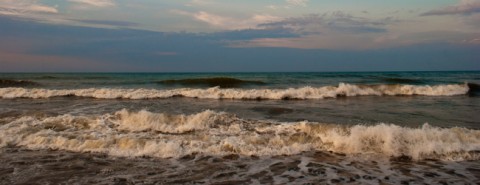Oceanside reading

I don’t know how the ocean got in my blood, but it did. Even though we lived hundreds of miles from the ocean, my parents talked about it: water as far as the eye can see, waves rolling and splashing, soft sand to play in, and holes that, if dug deep enough, would allow the ocean to seep in.
In my working-class home, vacation was when we painted the house, put in a new sidewalk, and weeded the garden. There was only one occasion when we actually visited the ocean, but I can still see the snapshots—me at five years old and my parents as great-looking young adults.
Years later, as soon as I had vacation time my wife and I found a way to head to the ocean with our young family. I dreamed of finding a spot by the ocean without the bright lights and noisy glitz of seaside resorts in New Jersey. Friends introduced us to a barrier island in North Carolina that consisted of one road end to end, a line of cottages facing the ocean, and a general store. This is our 38th year there. There’s a fresh seafood market where we purchase fish for dinner every day and greet the owners, now the third generation of them. A week in this place is part of our family’s rhythm. All of them come for seven days of wonderful chaos—grown children and spouses and grandchildren all falling in love with the ocean.




